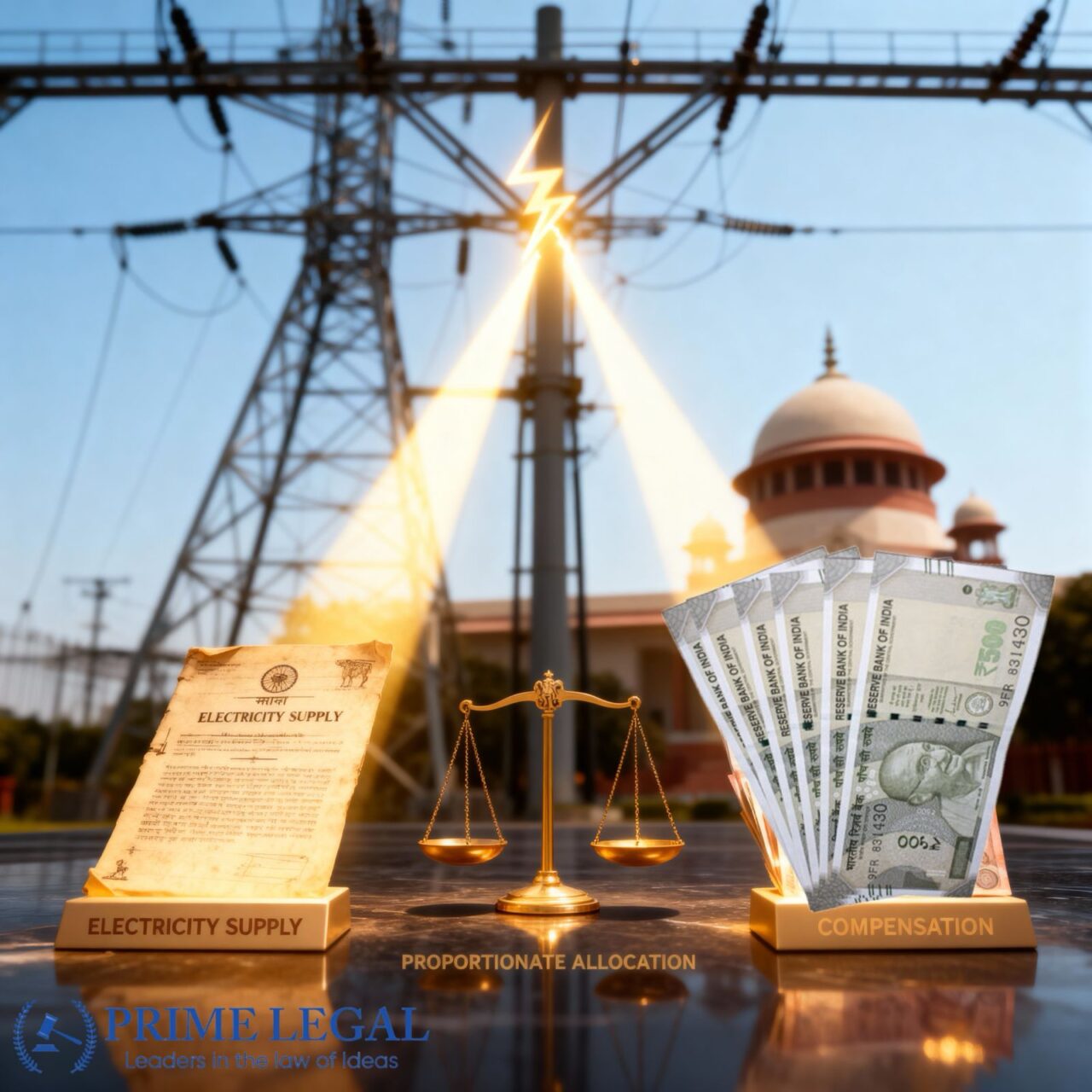Facts
Gujarat Urja Vikas Nigam Limited and Essar Power Limited agreed to share electricity, but Essar Power gave extra to its sister company, Essar Steel, breaching the contract. Disputes over compensation and penalties led to a long legal battle ending in the Supreme Court, focused on correct allocation, payment, and future rules.. They made several attempts to settle the dispute but there was no end to it so it reached the Supreme Court to clarify on the proper allocation. The main issue was how to calculate the allocation of the electricity and how to go about in calculating the appropriate compensation to the appellant.
Issues
Whether Essar Power was required to declare available electricity to GUVNL and Essar Steel as per the agreed PPA ratio.
Whether the letters dated 17-02-2000, 04-03-2000, and 04-10-2001 affected the parties’ rights under the original agreement.
Whether the appellant was entitled to compensation for power diverted to Essar Steel, and how it should be calculated.
Legal Provisions
Section 73 of the Indian Contract Act, 1872: This discusses compensation to a party for losses caused due to breach of contract.
Section 73 of the Electricity Act, 2003: functions of the Central Electricity Authority, speaks about planning, advising, and setting technical standards.
Section 86(1)(f) of the Electricity Act, 2003: Empowers State Electricity Commissions to adjudicate or refer disputes between licensees and generating companies.
Section 125 of the Electricity Act, 2003: This section Allows appeals to the Supreme Court against APTEL orders on substantial questions of law within a prescribed time limit.
Arguments
Appellants
GUVNL argued that EPL broke the contract by giving extra electricity to its sister company, ESL, instead of following the agreed split. They also argued that there were already paying for a fixed amount of electricity each month, so they were either entitled to receive that full supply or be compensated if any portion was diverted to Essar Steel. GUVNL asked for both energy costs and fixed charges to be fully repaid for any diverted share.
GUVNL also said that any one-time settlements or past deals did not mean it gave up its rights to future compensation. It believed the contract and basic rules required full repayment not just a part, so past decisions by regulatory bodies that only allowed energy charges, and not fixed charges, were not fair and did not match what had been originally agreed.
Respondents
The respondents said that they did not break any contract rules when more electricity was given to its sister company, Essar Steel Limited.
Essar Power believed only the cost of the actual electricity (energy charge), not extra fixed fees, should be paid as compensation.
They argued GUVNL never lost anything serious, and that GUVNL had accepted what happened by their own actions. Essar Power also said that details like how to measure the extra electricity (hourly or half-hourly) were things for experts to decide, not the court
Analysis
The court found that Essar Power Limited wrongfully diverted electricity to its sister company, and GUVNL was entitled to compensation for the lost energy and a refund of fixed charges paid for undelivered power. Compensation was to be based on the HTP-1 Tariff Energy Charge (minus variable costs), and fixed charges were to be proportionally reimbursed. The court also held that calculations must use half-hourly meter readings, as both parties had agreed to this method.
Judgement
The Supreme Court ruled that Essar Power Limited had wrongly diverted electricity meant for Gujarat Urja Vikas Nigam Limited (GUVNL) to its sister company. The court ordered that GUVNL should be paid back both the standard energy charges and the fixed charges for the power it paid for but didn’t receive. Calculations for the diversion and compensation were to use the agreed proportions and half-hourly readings. Past settlements were not treated as final, so GUVNL’s full claims for what it was owed were upheld, and Essar Power Limited was instructed to make appropriate payments with the correct method.
Conclusion
The Supreme Court concluded that Essar Power Limited had wrongly diverted electricity from Gujarat Urja Vikas Nigam Limited’s share to its sister company, Essar Steel Limited. The court ruled that the appellant must be compensated for both energy charges and fixed charges paid for electricity it did not receive.
“PRIME LEGAL is a full-service law firm that has won a National Award and has more than 20 years of experience in an array of sectors and practice areas. Prime legal falls into the category of best law firm, best lawyer, best family lawyer, best divorce lawyer, best divorce law firm, best criminal lawyer, best criminal law firm, best consumer lawyer, best civil lawyer.”
WRITTEN BY S. KAVIYA SRI
Click here to read more: Gujarat Urja Vikas Nigam Limited versus Essar Power Limited and another


